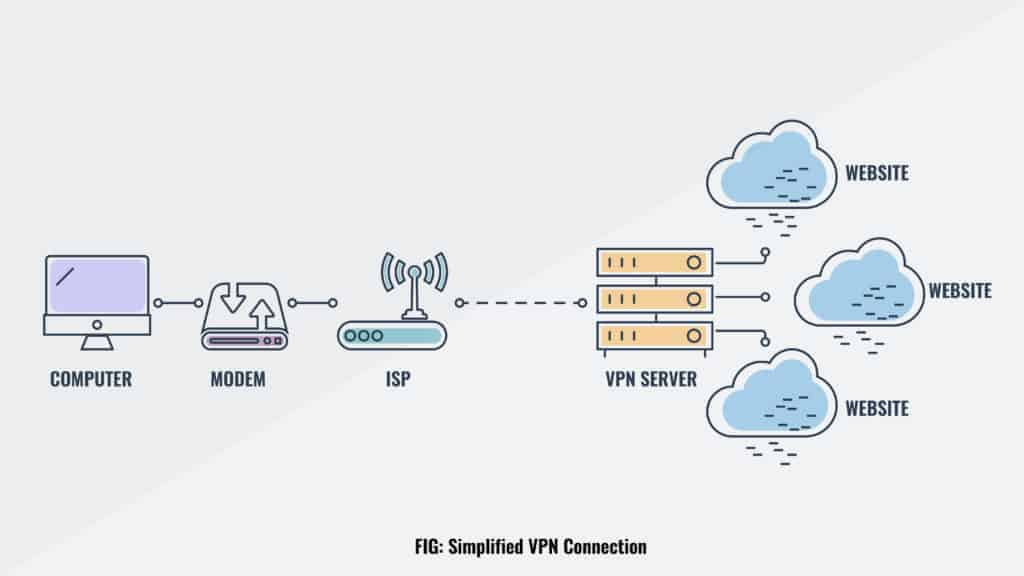Featured
Table of Contents
Tor Vs Vpn: Which One Is Better? - The World's Best And Worst
In practice, Tor Web browser is free, while VPNs are normally paid, which makes your choice easy, right? You need to simply opt for Tor and stop. Well,? Today, I want to provide you a complete comparison of Tor vs VPN and discuss what they represent, their differences, use cases, and far more.
To begin off this Tor vs VPN comparison, I initially require to describe what these tools represent. Providing you a clear definition of what they are and how they work will assist you comprehend their differences, so pay close attention. Beginning with Tor, this term is an abbreviation for "The Onion Router".
Nord, VPN It's important to bear in mind that this is a tool for privacy and not privacy I'll describe why shortly. When it concerns Tor nodes, they're held and preserved by volunteers, so we're talking about a decentralized service, instead of a centralized service which holds true with a VPN.
The excellent side is anonymity due to the fact that nodes aren't run by any particular business, so you aren't running the risk of saving and logging your surfing activity by that company. On the other hand, the security of each node depends upon the individual that's maintaining it. A node can be jeopardized by a hacker, let's say, who will be able to trace your connection.
Vpn Vs Tor: Which One Is Right For You?
The entry node is more critical since, when connecting to Tor, your ISP can see that you did that through the entry node. That's why many people utilize a VPN with Tor to encrypt their connection and prevent the ISP from seeing their Tor use. We'll talk about that in the future in this Tor vs VPN article.

Its "The Onion Router" name comes from the reality that it peels the layers of file encryption similarly to the onion layers. Below, I described how Tor works and the process of securing and decrypting your demands.
When you connect to the Tor network and you send out a demand, you get triple file encryption for each node. There's the entry node (frequently called the guard node), the middle node (or middle server), and the exit node. Tor sends your request to the entry node, which removes the very first layer of file encryption.
Nevertheless, the entry node can't check out the encrypted content of the request, so it still can't trace your activities inside the Tor network. The traffic is then sent out to the middle node, which eliminates another layer of encryption and sends out the encrypted traffic to the exit node. Lastly, the exit node peels the final layer of file encryption, which is why it can see the encrypted request however it can't identify who is sending it due to the fact that it can't see your IP address.
Tor Vs. Vpn: How To Decide Which Is Best For Your Online ...

If you're looking to stay anonymous online and you're believing about using Tor, I think it's good to know more about its advantages and disadvantages, so inspect them out below. The triple layer of encryption ensures 100% privacy when utilizing Tor Internet browser It's free and does not need any subscriptions It's a decentralized, open-source network with no monitoring and security Tor Internet browser is capable of going on the dark web The entry node can read your IP address and make it noticeable to your ISP when using Tor Slows down your web speed significantly due to innovative file encryption Nodes are run by volunteers who might not do an excellent task at making sure they're secure You can't select an IP address from a particular nation, so you can't bypass geo-blocks Tor Browser doesn't work on all platforms Wondering what are the differences between Tor and VPN?
VPN services offer thousands of servers in various countries, so they enable you to connect to any of them quickly and get an IP from the nation you require. Each demand you send out is routed through a VPN tunnel where it is sent out to a VPN server which decrypts it and connects you to the site you desire.
, for example, while Tor encrypts just the part of the connection sent through the Tor Browser.
![Vpn Vs Tor: A Comprehensive Comparison [2023]](https://cdn.technadu.com/wp-content/uploads/2022/07/Definition-of-TOR.png)
With a single layer of encryption, the VPN in fact goes through less actions to secure your connection which has a big advantage much faster speeds and better efficiency. They're really simple to utilize VPNs can be set up on every platform (Windows, i, OS, Linux, Android, mac, OS, routers,) You can select an IP address from a particular nation, letting you bypass geo-restrictions There's a higher degree of responsibility since you know who owns the VPN servers VPNs are very fast and exceptional suppliers offer 10 Gbps servers Advanced security functions like a kill switch, advertisement blocker, and Multi, Hop Total personal privacy, thanks to innovative encryption and the ability to conceal your initial IP It's a paid service which can be an issue for budget-constricted users Some VPN services are understood for saving logs (Hola VPN, Ninja, VPN, Betternet,) You should select a reliable VPN that has a no-logs policy given that you're handing over your privacy/anonymity to that company Now that you what Tor and VPN are, I feel the requirement to rapidly summarize their distinctions simply to make sure you comprehend everything well.
Latest Posts
Top Vpn Services - Enterprise Networking Planet
What Is A Business Vpn? Understand Its Uses And ...
Best Vpns For Freelancers And Remote Workers: Protect ...